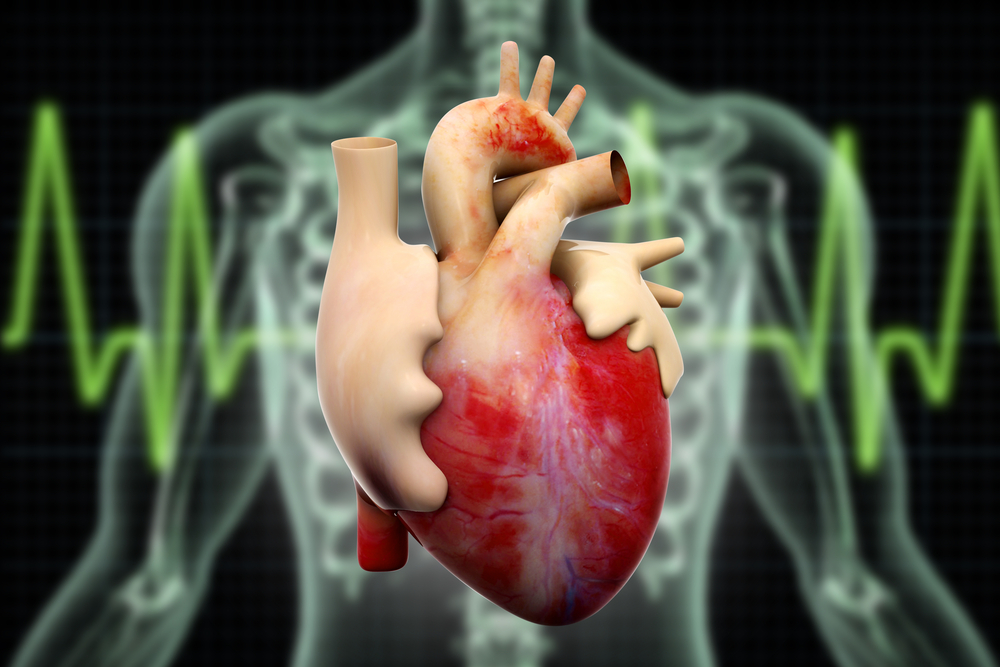Patients with moderate-to-severe chronic kidney disease (CKD) who were given cardiac resynchronization therapy with defibrillator had a reduced hospitalization risk for heart failure in comparison to patients who received an implantable cardioverter defibrillator. These are the results from a study titled “Comparative Effectiveness of CRT-D Versus Defibrillator Alone in HF Patients With Moderate-to-Severe Chronic Kidney Disease,” recently published in the Journal of the American College of Cardiology.
An implantable cardioverter defibrillator (ICD) is a small device placed in the chest or abdomen to help treat irregular heartbeats called arrhythmias. Current devices can be programmed to detect abnormal heart rhythms and deliver therapy via programmable antitachycardia pacing in addition to low-energy and high-energy shocks. Cardiac resynchronization therapy (CRT) with defibrillator has a similar mechanism of action with the difference that, in addition to delivering a shock, it can pace both ventricles at the same time.
To assess the real-world effectiveness of CRT with defibrillator (CRT-D) versus implantable cardioverter-defibrillator (ICD) alone in CRT-eligible patients with moderate-to-severe CKD, Daniel J. Friedman, MD, the study’s lead author and a fellow in cardiology at Duke University Hospital, in Durham, North Carolina, and colleagues used data from the National Cardiovascular Data Registry’s ICD Registry linked with claims from the Centers for Medicare and Medicaid. The medical records of 10,628 patients with kidney disease were examined. All patients were eligible for either of these devices between 2006 and 2009, and of this cohort, 87% received cardiac resynchronization therapy with defibrillator.
After risk adjustment, the use of CRT-D was associated with a 15% to 20% reduction in heart failure (HF)-related hospitalization or death, compared to those receiving an ICD. Subgroup analyses suggested that CRT was associated with a reduced risk of HF hospitalization and death across CKD classes. The incidence of in-hospital, short-term, and mid-term device-related complications did not vary across CKD stages.
Dr. Friedman said that the study findings support the link between cardiac resynchronization with defibrillator and improved outcomes for patients with advanced kidney disease. But the results also revealed that cardiac resynchronization therapy was no more effective than implantable cardioverter defibrillators in decreasing progression to advanced kidney disease. “Taken in sum, the results from this study support the use of cardiac resynchronization therapy independent of kidney function. The treatment is associated with a reduction in risk of heart failure hospitalization and mortality. These results, however, should be confirmed by prospective randomized studies,” Dr. Friedman said in a recent news release.
In an accompanying editorial, John G.F. Cleland, MD, PhD, professor of medicine at the National Heart and Lung Institute in London, noted that with only a modest decrease in the hospitalization risk for HF and death, it is uncertain if this population benefits from the treatment, particularly as the study did not compare the data with a device-free control patient cohort. “Within three years, 61 percent of those with end-stage kidney disease who received an implantable cardiac defibrillator and 54 percent who received cardiac resynchronization therapy with defibrillator had died,” Dr. Cleland said. In these instances, it may be better not to “implant, at some risk and discomfort, an expensive piece of technology, which may be attended by substantial morbidity” and instead “have a frank discussion with the patient about the limits of modern medicine,” he concluded.

